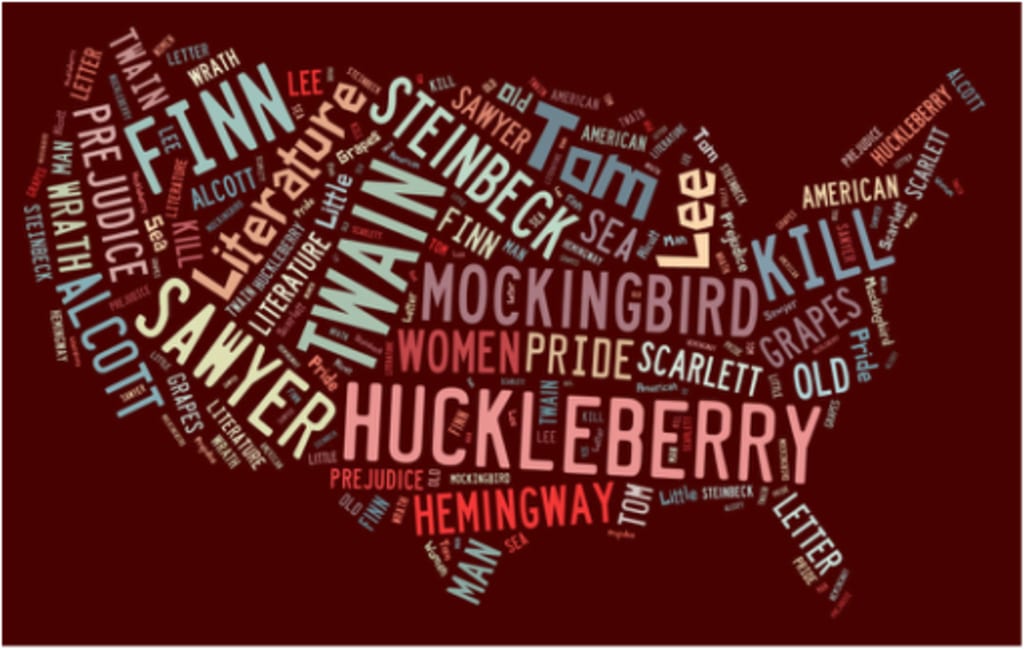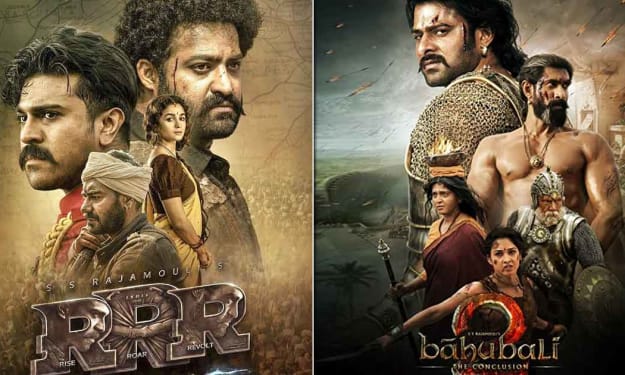What Constitutes American Literature?
Why Zora Neale Hurston's 'Their Eyes Were Watching God' Deserves to Be in the Same Canon as Twain, Hemingway, and Other Well-known American Authors

If you Google search “American literature,” you get results from Mark Twain to Edgar Allan Poe to Ernest Hemingway, but where is the diversity that makes America? Where are the female authors? The African American authors? Anyone of a minority? Honestly, they are not what comes to mind when someone says to tell them about great American literature. We think of Hemingway or Twain as American literature because that is what we are taught, giving them the biggest audience and the chance to become well-known. The only definition given for what constitutes as American literature is, “literature in English produced in what is now the United States of America.” (“American Literature”) It is as simple as that. Which means, that novels such as Zora Neale Hurston’s Their Eyes Were Watching God, should easily be placed in the American canon, finding its own audience to reach out to.
Hurston’s work as an African American female, which does not focus solely on racial inequality, was and still is met with mixed reviews.
Upon its publication in 1937, Their Eyes Were Watching God was celebrated by many high-profile outlets for being a well-written meditation on what it meant to be a woman of color and independence in the 20th century. Simultaneously, some African-American critics were unimpressed, taking Hurston to task for not conforming to the underlying message among black authors to challenge racism. (Rossen)
However, while it is not a central theme of the novel, Hurston does spend some time focused on slavery and racism towards the beginning of the novel; for example, when Nanny is attacked by her Mistress for having a whiteish baby: “She begin tuh slap mah jaws ever which a’way. Ah never felt the first ones ‘cause Ah wuz too busy gittin’ de kivver back over mah chile. But dem last lick burnt me lak fire.” (Hurston 17) Hurston’s novel should not be criticized for lacking racism, but instead celebrated for creating a world where race is not a factor in the lives of her characters. On the other hand, having an audience to read the story is part of what makes American literature, so if Hurston had the support of “many high-profile outlets,” she was capable of being popular in American literature, even without the critics who wanted more of a fight about racism. She showcased what life was like for women like herself in America the way she saw it, which involved the decline of slavery and racism.
Later, in the 1970s, and with the rise of feminism, Hurston’s Their Eyes Were Watching God was rediscovered for its outlook on life for females. “When the book was reissued in 1978, it sold 75,000 copies in one month.” (Rossen) Throughout the novel, Hurston shows female empowerment, which the feminist movement was happy to latch onto. While feminists were looking for equality and power, Janie already had it. She was “sittin’ on porches lak de white madam… but… ah done nearly languished tuh death up dere. Ah felt like de world wuz cryin’ extry and Ah ain’t read de common news yet.” (Hurston 114) Feminists no longer wanted to sit on the front porch, but they wanted to be involved in the world like Janie is throughout the story. At the end of the novel, Janie says, “Two things everybody’s got tuh do fuh theyselves. They got tuh go tuh God, and they got tuh find out about livin’ fuh theyselves.” (Hurston 192) That is all the feminists really wanted. The chance to find out about living for themselves. Hurston knew what females wanted long before they had the idea to begin fighting for it. This gave Hurston a whole new audience of females who clambered to read Their Eyes Were Watching God in their new feminist style.
Another way to see the wide audience of Their Eyes Were Watching God is through the legacy that came from it. “Maya Angelou and Alice Walker credit Hurston with inspiring their own works,” (Rossen) which gives Hurston more of an audience through the works of others. Also, Spike Lee begins his movie, She’s Gotta Have It, with a quote from the beginning of Hurston’s novel, Their Eyes Were Watching God by saying,
Ships at a distance have every man's wish on board. For some they come in with the tide. For others they sail forever on the horizon, never out of sight, never landing, until the Watcher turns his eyes away in resignation, his dreams mocked to death by Time. That is the life of men. Now, women forget all those things they don't want to remember, and remember everything they don't want to forget. The dream is the truth. They then act and do things accordingly. (Hurston 1)
From there, the movie is about a woman in three very different relationships, much like Janie’s multiple relationships with Logan, Joe, and Tea Cake. This connection between the book and the movie gives Hurston a much wider audience, as most Americans are more likely to watch a movie than read a book. Since most Americans wish to watch instead of read, Their Eyes Were Watching God was also made into a 2005 TV film by Oprah Winfrey, (Rossen) giving Hurston her own wider audience based on her book. The final way Hurston’s audience has grown was through a 2012 radio play to celebrate the book’s 75th anniversary, (Rossen) which again grew the audience that now knew the story behind Their Eyes Were Watching God. Hurston’s novel now has many readers in its audience, so why is it still not popular enough to make the Google search of “American literature?"
Probably because America is just too big. “American fiction fascinates because of the country it seeks to depict: Its vastness, its extremes of landscape and temperatures, its hundreds of races, its gulfs between wealth and poverty.” (Evers) While Hurston’s novel can speak to feminists, movie audiences, and female African Americans from the century, it lacks the adventure, the scares, and the magic today’s audiences look for. When reading on their own, people want Stephen King to scare them and John Green to help them fall in love. When reading for school, we see through the lens of Hawthorne’s Scarlet Letter to behave according to societal standards and love through Fitzgerald’s twisted The Great Gatsby. No one tells us it is okay to read Their Eyes Were Watching God and identify with Janie’s struggles because it is not popular, it does not show American values. It is not white, which even today matters in our educational systems. Zora Neale Hurston’s Their Eyes Were Watching God is a fascinating story that deserves a wider audience by being included in the canon of Great American literature. Her photo should show up next to Hemingway, Twain, and Poe next time someone Googles "American literature."
If you want to read Hurston's novel on America, here's the link to the book's Amazon page.
Or if you just want to know more about it without actually reading it, here's a video of John Green explaining the book for you.
About the Creator
Kristen Barenthaler
Curious adventurer. Crazed reader. Archery fanatic. Amateur author. Librarian.
Instagram: @kristenbarenthaler
Facebook: @kbarenthaler
GoodReads: https://www.goodreads.com/author/show/15101108.Kristen_Barenthaler






Comments
There are no comments for this story
Be the first to respond and start the conversation.